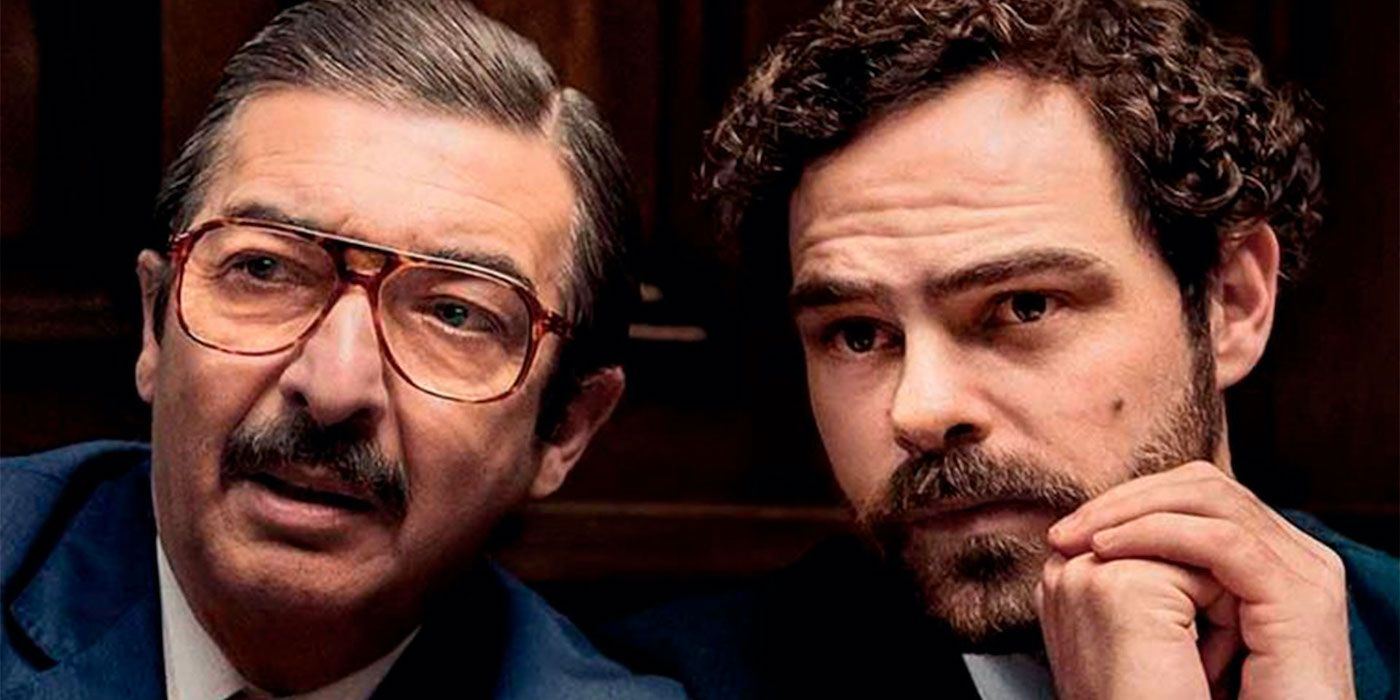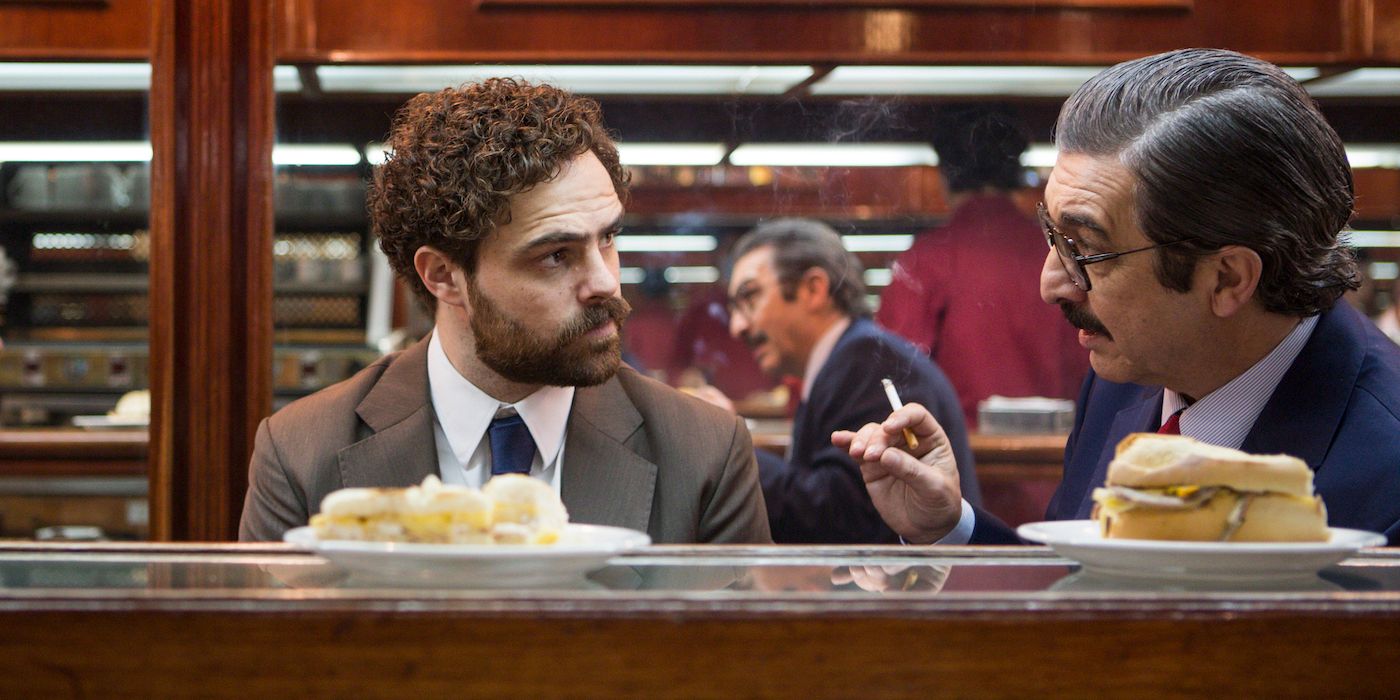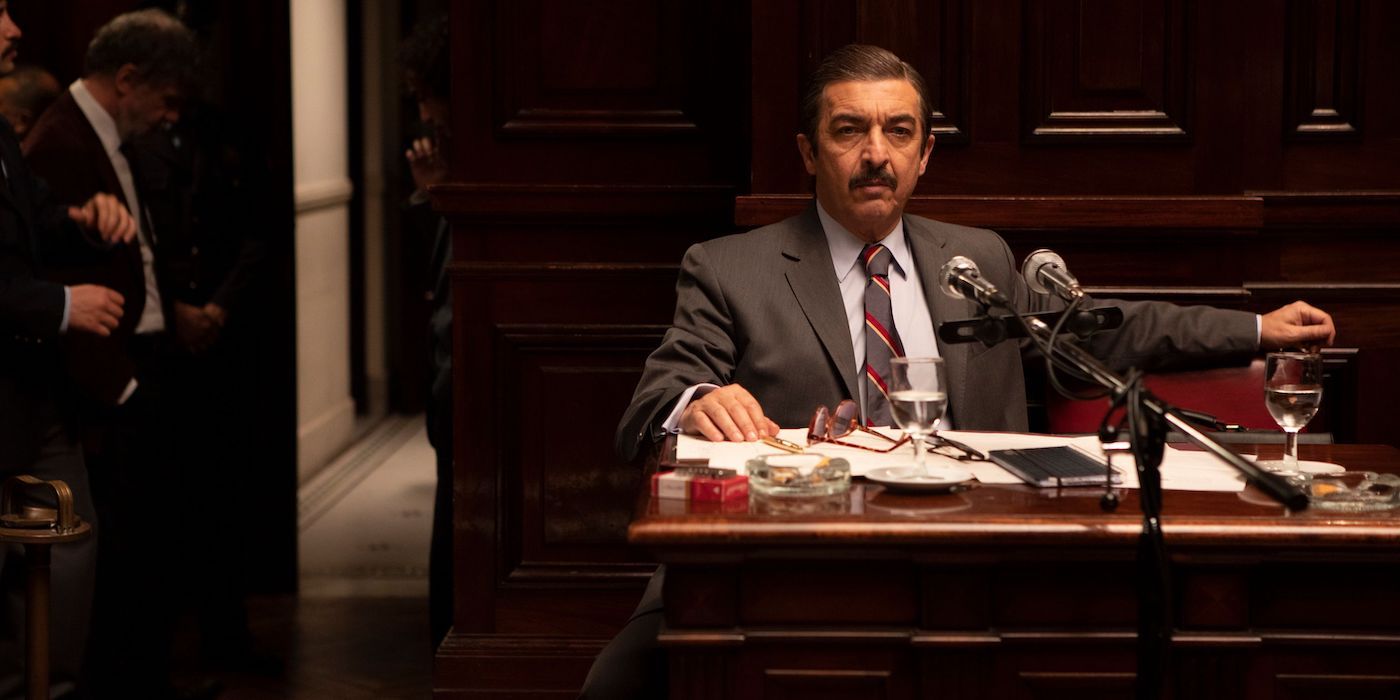Fresh off its recent win for Best Foreign Language Film at the Golden Globes, and an Oscar nomination for Best International Film, Argentina, 1985 has gained much attention for placing a critical period in the history of contemporary Argentina in center stage. Directed by Santiago Mitre, Argentina, 1985 depicts the Trial of the Juntas, the prosecution of Jorge Videla's dictatorship that exploited and oppressed the country from 1976 to 1981. The film plays out through the perspective of the case's chief prosecutor Julio César Strassera and his assistant Luis Moreno Ocampo, who worked unremittingly to bring justice to the crimes and human rights violations committed by Videla's regime. While Argentina, 1985 creates a true-to-life portrait of the Trial of the Juntas, audiences may crave more background understanding of Videla's dictatorship and how it led to more than 30,000 estimated disappearances and deaths of Argentine citizens.
What Is 'Argentina, 1985' About?
Argentina, 1985 concentrates on Strassera, played by Argentine superstar Ricardo Darín, well-known for his performances in films including The Secret in Their Eyes and Wild Tales. Strassera is portrayed as a loving family man who resisted the power of the dictatorship before becoming a federal prosecutor in 1983 after Videla's downfall. Ahead of being named the chief prosecutor for the Trial of the Juntas in the autumn of 1984, Strassera is transparent about his reservations and anxieties concerning the case - how it could impact the safety of his home life and, most importantly, the future of Argentina.
At the preliminary hearing for the trial, Strassera is assigned a deputy prosecutor - Luis Moreno Ocampo (Peter Lanzani in the role) - who wishes to combat his familial military ties to bring justice to the victims of the dictatorship. Together, the two men build an unexpected team of young students and non-lawyers to collect evidence and eyewitness accounts of the crimes perpetrated by the junta. From October 1984 to February 1985, the unlikely prosecuting squad travels all corners of Argentina to interview victims of Videla's regime and gather information to use during the litigation.
When the Trial of the Juntas finally commences in April 1985, Strassera's team has gathered over 800 witness testimonies, which the film heartbreakingly explores through montage and archival footage from the times. Much of the last half of Argentina, 1985 takes place in the courtroom, building naturalistic tension and supplying historical accuracy to underline the importance of the case and its crucial impact on the future of civil liberty in Argentina. In the film's depiction of Strassera's closing arguments in September of the same year, the script employs the prosecutor's iconic real-life quote: "I wish to use a phrase that is not my own because it already belongs to all the Argentine people. Your Honors: Never again!"
Argentina Under Videla's Dictatorship
Videla became General Commander of Argentina's army in 1975 when many South American militaries and right-wing supporters were being backed by the United States as part of Operation Condor, which aimed to stamp out threats of leftist and communist world powers during the Cold War. Led by Videla in March 1976, the Argentine Armed Forces took advantage of the country's growing instability, seizing political power in a coup d'état against Isabel Perón, who had taken over the presidency following the death of her infamous husband, Juan Perón.
Immediately, Videla's military junta obscured its deplorable actions under the name of the National Reorganization Process, dissolving Congress, banning political parties, and drastically limiting civil liberties. The junta also began to tightly restrict freedom of speech and embraced intense national media censorship. Even more extreme, the military dictatorship started violently targeting Argentine citizens accused of supporting left-wing ideologies. This state-sponsored terrorism led to the murder or disappearance of many thousands of innocent people, known in Argentina as the "Desaparecidos." During the dictatorship, Videla and his military following created over 300 concentration camps and torture centers throughout Argentina, where they committed brutal crimes against abducted citizens. One of the most notoriously horrific offenses committed during Videla's Dirty War were the "death flights," when citizens were bound, drugged, and thrown into the open sea out of airplanes. Videla's reign of terror lasted until March 1981, when after 5 years, he was finally forced to step down following growing public outrage against the state violence and the economic turmoil facing Argentina.
The Trial of the Juntas
Following the fall of Videla, the National Commission on the Disappearance of Persons was created in 1983 to investigate the crimes perpetrated by the dictatorship. This led to the Trial of the Juntas, the first and only civil court trial of war crimes in any Latin American country. Videla and 9 of his closest supporters were prosecuted, many of whom were top-ranked military officials complicit with carrying out the crimes of the Dirty War. However, Videla and his followers refused to acknowledge the legitimacy of the trial, wishing to be tried instead by a military court, which had already declined to be involved with the case since they had favored the dictatorship.
The Trial of the Juntas lasted from April 22 to December 9, 1985, with chief prosecutor Strassera presenting over 700 cases of accused criminal offenses taken out by Videla's regime and over 800 witness testimonies. Through the first-hand depositions, the courtroom, press, and audiences of the televised trial were able to learn of personal accounts of the horrendous suppression, brutality, and violence taken out by the dictatorship against the Argentine citizens. When the trial's sentencing was announced in December, Videla was given life imprisonment, along with another high-ranking military official. Others were also given prison sentences, but 4 of the 10 men were acquitted for their involvement. The Trial of the Juntas proved immensely important in Argentina's national healing journey following the dictatorship, a damaging and terrifying era of the country's modern history that still permeates the memory and spirit of Argentina today.
Although the film operates in many ways as a procedural courtroom drama, Mitre's Argentina, 1985 is successful in its portraiture of a nation facing its traumatic past, creating a powerful statement that can be applied to persecuted communities even today. As right-wing principles continue to permeate many parts of our world, Argentina, 1985 and its genuine depiction of the country's most significant court case serve as a crucial reminder of the importance of battling for civil rights and freedom. In addition, this film can function as a riveting and sincere entrance point to exploring the country's rich political and social history for audiences unaware of Argentina's past. Audiences can now find Argentina, 1985 streaming on Amazon Prime. As just announced, Argentina, 1985 has received an Academy Award nomination for Best International Film, marking Argentina's seventh nomination in the category, which the country has won twice.



